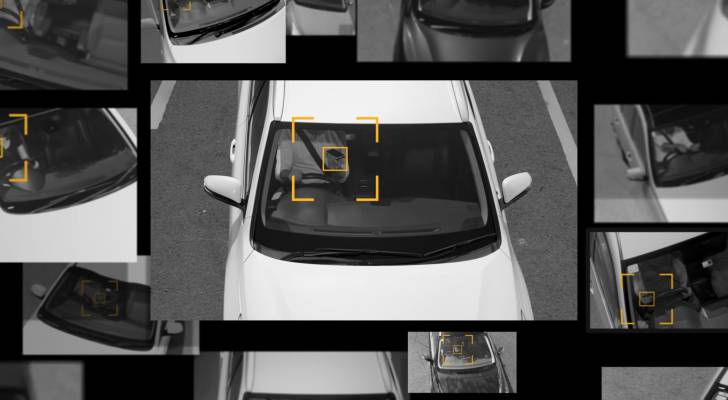Traffic camera footage
Traffic cameras in Jordan ignite debate over privacy rights
Traffic cameras in Jordan, utilized to monitor violations such as using mobile phones while driving or not wearing seat belts, have ignited a growing legal and public debate regarding their compliance with privacy protection laws and the Jordanian constitution.
While government officials advocate for these cameras as essential tools for enhancing road safety, critics argue that their use may infringe on personal freedoms, particularly when it comes to capturing images inside vehicles.
- Legal framework for camera use -
The legitimacy of traffic cameras in Jordan is anchored in the Traffic Law No. 49 of 2008 and its amendments. Article 38 empowers the Traffic Department to employ technical means, including cameras and radar devices, to enforce traffic violations. Additionally, Article 27 mandates that drivers wear seat belts and prohibits mobile phone use while driving, allowing for the monitoring of these infractions within a legally sanctioned framework.
The general legal principle asserts that public roads do not afford individuals complete privacy. Thus, photographing in these spaces is deemed lawful, provided the intent is to enforce the law. This perspective aligns with many global legal systems that differentiate between public and private areas.
Support for this framework comes from the Cybercrime Law No. 27 of 2015, which prohibits photography or recording in private spaces without consent but does not extend to government traffic cameras monitoring public compliance.
Furthermore, Article 18 of the Jordanian Constitution protects the confidentiality of communications but does not prevent surveillance for legitimate purposes such as public safety, which aligns with the judiciary's trend toward supporting measures that reduce traffic accidents.
- Controversy over in-vehicle photography -
While the use of cameras to monitor external violations, such as speeding and illegal overtaking, is generally accepted, capturing images inside vehicles raises significant concerns.
Critics argue that vehicles should be treated as private spaces, akin to homes, and that any intrusion should require a judicial warrant issued by the public prosecutor, according to the Jordanian Criminal Procedure Law. They warn that photographing the driver and passengers, including family members, could violate Article 348 of the Penal Code, which criminalizes "peeping" and punishes infringements on personal freedom without judicial authorization.
Opponents contend that if authorities obscure images of passengers due to concerns about social or familial repercussions, it may indicate an awareness of the illegality of such actions or their conflict with societal norms against photographing individuals without their consent.
Critics are urging affected citizens to file formal complaints with local peace courts based on the location of violations to challenge the legality of these practices.
- International comparison -
In the US, traffic cameras are not considered a violation of privacy under the Fourth Amendment, which protects against unreasonable searches, as long as they are employed in public spaces and aim to enhance safety without excessive surveillance or continuous personal tracking without judicial consent.
Some states, however, impose additional requirements, such as providing clear notifications to drivers or imposing restrictions on the use of collected data, reflecting an effort to balance law enforcement with individual rights.
- Judicial and public sentiment -
Thus far, Jordanian courts have not ruled against the general use of traffic cameras; instead, there seems to be judicial support for their deployment as deterrents for traffic violations and a means to reduce accidents, given their role in promoting public safety.
However, public concerns about the legality of photographing inside vehicles are rising, particularly as cameras capable of capturing personal details become more common, leading to fears of potential violations of privacy.
- Future considerations -
The ongoing debate over traffic cameras in Jordan underscores the need for precise legislative clarification that defines their scope, particularly regarding in-vehicle photography. In the absence of definitive judicial precedents, future court cases may offer an opportunity to establish clear legal boundaries between the necessity for public safety and the rights of individuals to privacy, ultimately shaping the future of this technology in the kingdom in the years to come.




